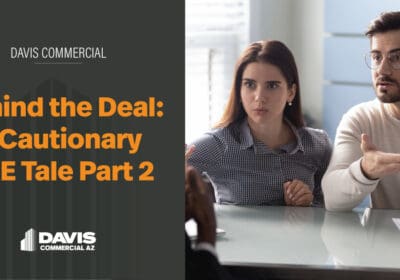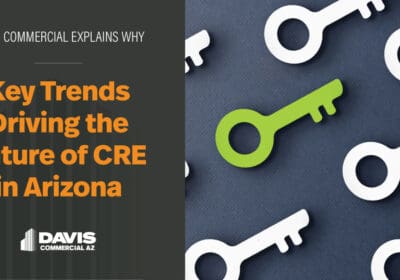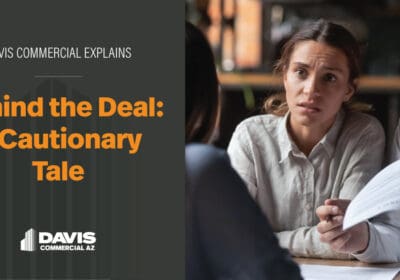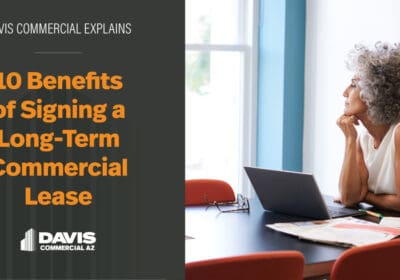What Indie Business Owners Need to Know Before Leasing a Space – Part 2
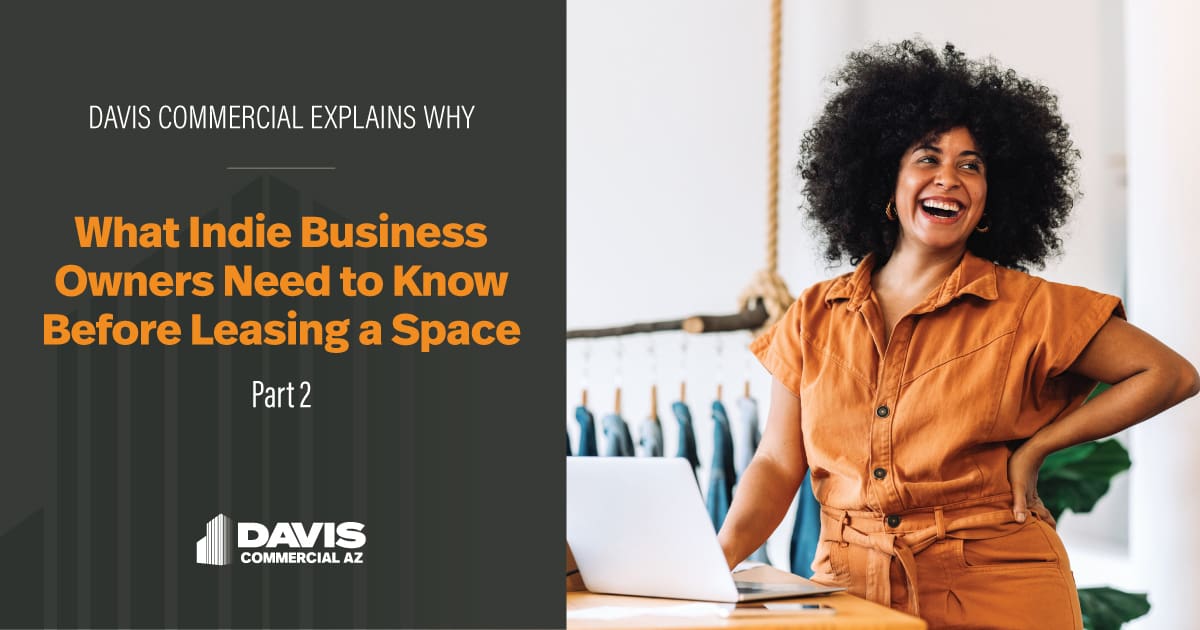
If you read part one of this two-part blog, you are well on your way to being ready to open your retail, restaurant, or office location. We already covered creating your business plan, scouting out your preferred location, and choosing the perfect commercial broker. The outlined the letter of intent or LOI (that details your offer on the space) and all of the lease terms were explained. So now what happens? Get ready for a flurry of activity… Buckle up!
Let’s continue where we left off in Part 1 learning about the LOI. After your rock star commercial broker or tenant rep gets all of your input from the property tour, drafts the LOI for your favorite location, and reviews it with you, she emails it to the broker that represents the landlord. The broker has a few days to review this important non-binding document. Sometimes they reply promptly and sometimes they need a bit of a push. Either way, the LOI is returned with what the landlord will agree to or not, creating their changes as Word document redline edits. Please note that often these redlines may not appear on your phone. If that is the case, just open it up on your laptop. Expect the negotiations to go back and forth a few times. Your tenant rep will discuss each update received every step of the way and won’t agree to anything until you do. If you haven’t already, now is the time to contact your commercial real estate lawyer since you will want them to review and comment on the upcoming lease. Make sure they block out time in their busy schedule and are not about to embark on a three-week Caribbean cruise.
Once the LOI negotiations are agreed on, the lawyer for the landlord will draw up the lease. The lease is a very, very long legal document that will read like stereo instructions to most people, so don’t feel intimidated by all the legal language. A qualified commercial broker compares the draft lease against the agreed upon LOI to make sure everything that was in the LOI is in the lease. She always looks out for your best interest but is not an attorney. Do not skip the critical step of hiring a lawyer to review the lease. You’re embarking on this journey for three, five or seven years so don’t cut corners by trying to do this yourself. Your lawyer will receive the draft lease as a Word document and just like the LOI, they mark up the lease with redline changes and deletions based on your needs. They explain every section until you feel comfortable with the outcome.
While the lease negotiations continue, you’ll be busy polishing up your business plan and marketing strategy. If you haven’t already, create a website, social media accounts, set up search engines like Google and Yelp, determine your store hours, and more, oh my! If you’re looking for guidance or inspiration, check out the Economic Development section of the town website where your business will be. There you will find an entire team of people who are there to support you!
“In Scottsdale, the heartbeat of our community is our small businesses – with 95% of local businesses powered by the dedication of fewer than 50 employees” said Scott Cooper, the City of Scottsdale’s acting Economic Development Director. “It’s why entrepreneurs and small businesses are an important focus in our 5-year Strategic Plan and will continue to be a part of our programming and outreach efforts. I encourage everyone to take a look at www.choosescottsdale.com and see what we have to offer.”
Municipalities understand how much each business contributes to the success of their community so don’t overlook their vast resources. Scottsdale is a great example of a city with tons of startup information, and links to helpful sites. Your local Chamber of Commerce and Small Business Administration provide valuable information as well.
Ideas to increase your Indie business exposure.
We mentioned marketing and don’t want to emphasize enough the importance of having each method perfectly in place when launching your Indie business. Social media has transformed how we connect with customers so do your best to maintain active accounts. Make your business stand out by creating a FREE Google Business Profile. This is where every human on the planet will go first to learn about your location, directions, images, store hours, reviews and more. Create a marketing calendar with reminders to help you keep track of your marketing efforts. Update your Google Profile during holidays to change store hours and add promotions. Keep an eye on Google reviews to learn what customers are saying about you. Respond to good reviews with thanks and bad reviews with solutions. Marketing is such a crucial part of your plan that you could consider hiring someone to help you manage it. Often the group that creates your website also manages Instagram, YouTube, Tik Tok, X, Facebook, and Next Door. Know your audience. If posting on all of the platforms seems overwhelming, focus on where your customers go and maximize that social space.
What about when shoppers need to find you in real life (IRL)? Make sure your address and signage are easy to see and read from the street. Be careful when choosing your font size and style for your awning. Assure that the address and suite numbers are big and bold. Create a phone greeting that guides customers to your location. State that you are near a prominent cotenant and mention major cross streets. Avoid references to what business occupied the site in the past. It’s your business now so let the press and local leaders know you want to be known that way.
Today’s hiring outlook continues to be a challenge. Staffing your business may prove to be difficult depending on where your small business is located. Finding great workers who will represent your brand favorably is a top priority. Take the time to write out a job description and list of qualifications needed. Create questions to ask in the interview process. Consider doing a background check, speak to references and look at the prospects social media accounts to be aware of any red flags early on. Promote that you are hiring on your social media accounts. People enjoy working for a business that they love so you may find your top new employee among your most loyal Instagram followers.
We have covered so many parts of what it takes to begin your Indie business journey, but realize there are many, many more. Make lists by category to keep track of what needs doing, and what’s been done. You will thank your organized self for keeping on top of things and pat yourself on the back for what you have accomplished. Soon it will be Grand Opening day and you will know that all of your hard work was worth it!
 About Andrea Davis
About Andrea Davis
Davis Commercial AZ is committed to helping our clients realize their commercial real estate vision for over 25 years of experience. We ensure a premier standard of services and client dedication is at the center of everything we do. We pride ourselves on working on your behalf to secure all possible incentives in this marketplace. Davis Commercial AZ is owned by Andrea Davis, CCIM, a respected industry leader whose breadth of knowledge stretches from developers to landlords to buyer/tenant representation and investments. Davis has won numerous awards, is in the top 10 category for Office Brokerage in Ranking Arizona and is a regular educational blogger for theBrokerList. Her book, SimpLEASEity™, neutralizes leasing fears and is the first in a series of commercial real estate guidebooks. Her next book, Simply Own It, the American Dream, is scheduled to be released this year. For more information visit www.daviscreaz.com.
 About Scott Cooper, CEcD
About Scott Cooper, CEcD
Scott Cooper is currently serving as the city of Scottsdale’s acting economic development director after previously holding the position of business attraction manager.
Scott has extensive economic development experience covering 25 years that started in Iowa where he served as the CEO of a joint economic development/chamber of commerce organization for 7 years. He relocated to Arizona to work for the City of Scottsdale’s Economic Development department from 2002-2007. Scott has also led economic development organizations for the Town of Fountain Hills, and most recently in Oregon.
Scott holds a degree in Community & Regional Planning from Iowa State University, is a CPM (Certified Public Manager), earned his IOM (Institute for Organization Management) graduate recognition through the U.S. Chamber of Commerce, and is a CEcD (Certified Economic Developer) through the International Economic Development Council.

 About Andrea Davis
About Andrea Davis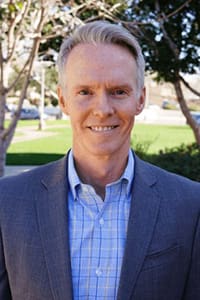 About Scott Cooper, CEcD
About Scott Cooper, CEcD